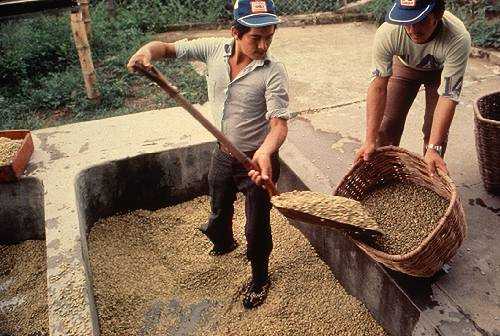BOGOTA, Colombia – With an investment of 25 million Euros for a five-year period, the ‘Manos al Agua’ program foments integrated water management in twenty-five Colombian watersheds based on an Intelligent Water Management model.
Led by the Colombian Coffee Growers Federation (FNC), the Dutch Ministry of Foreign Affairs, the Colombian Presidential Agency for International Cooperation, Cenicafé, Nescafé, Nestlé, Nespresso, and Wageningen University, this public private partnership is the largest global coffee initiative addressing climate variability and water-use issues.
According to Roberto Vélez, CEO of the FNC, “transforming coffee growing into a climate-adaptable and sustainable endeavor is one the major challenges currently faced by the Colombian coffee sector.
Water imbalances (whether scarcity or excess) hinder agricultural productivity, with annual harvest losses of up to 40%. This has significant repercussions for the income and livelihood of Colombian coffee growing families.”
‘Manos al Agua’ is a unique and innovative program that seeks to develop regional solutions that are aligned to international sustainability initiatives. As a replicable model, the program seeks to benefit Colombia’s 563,000 coffee growing families by enhancing their resilience and adaptability to water and climate events.
As Jean-Marc Duvoisin, CEO of Nestlé Nespresso, noted, “‘Manos al Agua’ is a great example of what Nespresso is working for through the AAA Sustainable Quality Program: simultaneously building a sustainable future for coffee growers and the environment in order to guarantee the supply of high quality Colombian coffee in the long run.”
Water management has been an ongoing challenge for Colombian coffee growers. Most coffee growers use their farms as processing facilities, implying intensive water use and often increasing water source pollution. ‘Manos al Agua’ seeks to address this, and other water related challenges, by working at different levels.
At the community level, for instance, it will ensure that more coffee growers have access to post-harvesting centers, which will significantly improve water use practices. At the territorial level, the program will mitigate risks such as erosion. Similarly, at the farm level, it will introduce wastewater management innovations.
As Marcelo Burity, Director of Nestlé’s Green Coffee Development, explained, “With more than 11.000 coffee growing families in twenty-five watersheds in Antioquia, Caldas, Cauca, Nariño and Valle del Cauca, the project is promoting the transfer of technologies that foment optimal water use and pollution management in coffee growing farms.
Parallel to this, its implementing reforestation and bioengineering techniques (soil management) to stabilize watershed ecosystems”.
Partners highlight the Program’s strenghts
‘Manos al Agua’ is the Dutch Ministry of Foreign Affairs’ largest project. It’s a unique example of a solid high-impact initiative in which collaboration between the public and private sectors generates tangible results, noted the Netherlands Enterprise Agency, RVO.nl.
“Its much more than merely providing assistance. ‘Manos al Agua’ foments cooperation for the creation of better trade conditions,” stressed Maarit Ivalo, Project Advisor of the RVO.nl.
Javier Texidó, President of Nestlé Colombia,argued: territorial development and natural capital is the core of Manos al Agua’s strategy.
The program is designed to impact regions rather than to generate isolated solutions. The development of experiences that foster cooperation among communities, such as this one, is a priority for Nestlé.
“Intelligent Water Management uses scientific and training systems to generate knowledge that advances the understanding of water and climate phenomena.
It generates tools for better decision-making regarding coffee growing and rural development, as well as for the strengthening of water policies,” noted Wouter Wolters from Wageningen University.
“This public private partnership is a strong and decisive step towards achieving a sustainable agricultural model and a more prosperous and peaceful rural area.
It places great emphasis on strengthening coffee growing’s natural capital. We thank our public and private partners for investing in the future of Colombian coffee growing,” said Mr. Vélez.
For further information visit: www.cafedecolombia.org and www.manosalagua.com


















